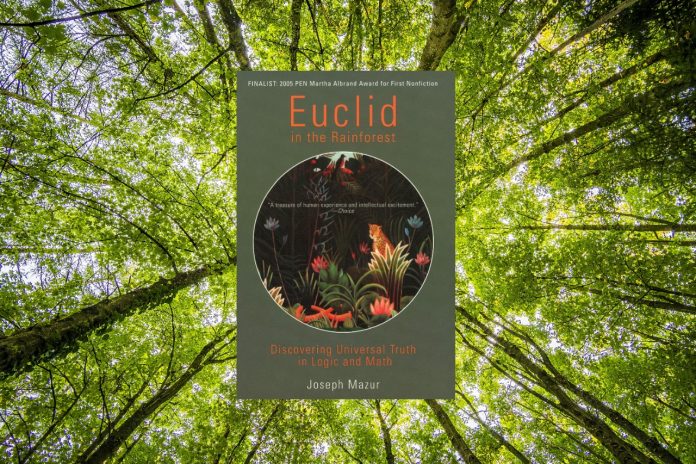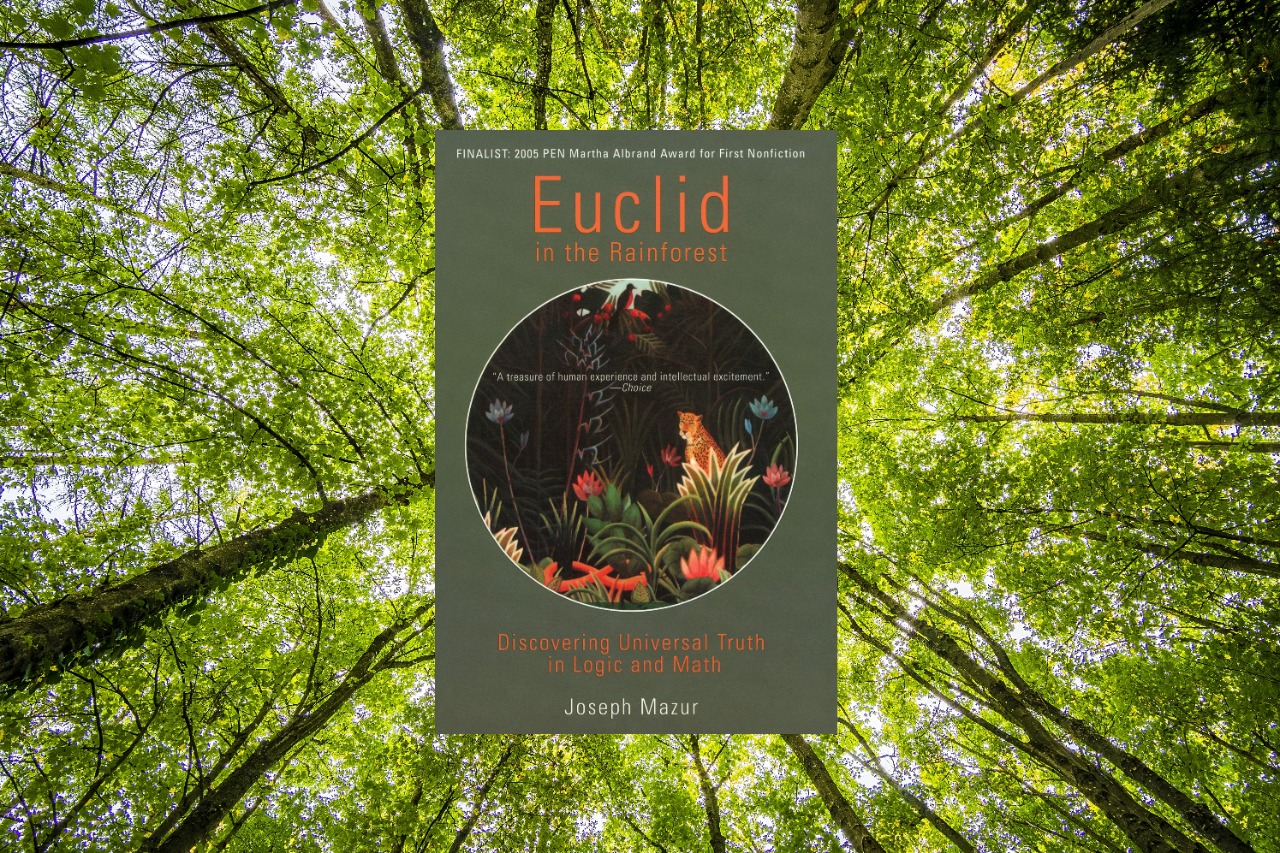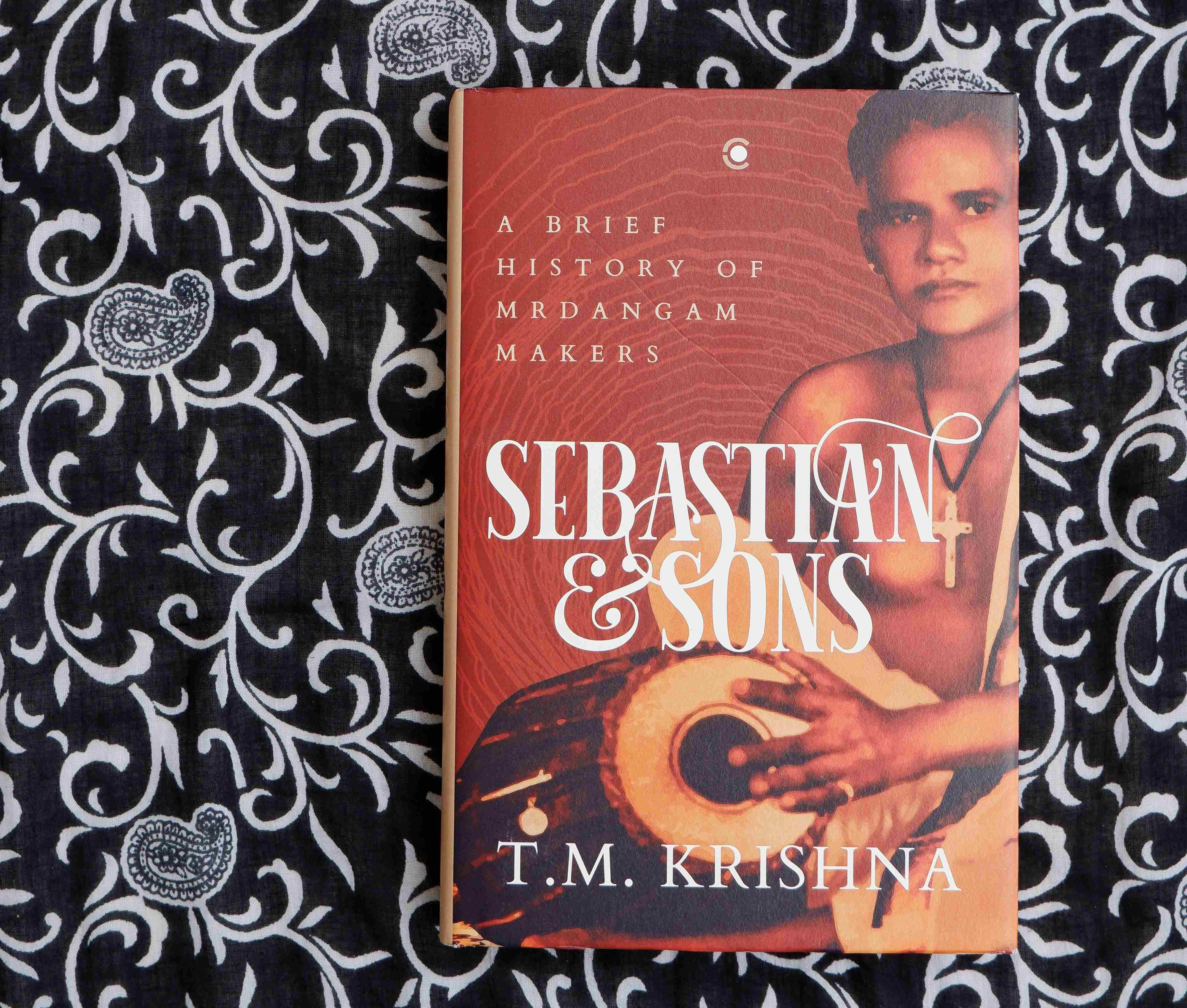Euclid in The Rainforest: Discovering Universal Truth in Logic and Math
by Joseph Mazur
Publisher: PI Press (2005)
I’ll admit that books on mathematics and logic are not really up my alley. I tried several times in school to love the subject, to get Maths to love me, all in vain. I believed, and this belief was enforced several times in my trysts with the subject at school, that there was one, single methodical approach that would yield the desired proof or answer, only one lens through which Maths could be and ought to be viewed. To my mind at least, there was a certain rigidity that came with subject and this was something I couldn’t wrap my head around. I wish I had to read this for my Maths class at school because what Joseph Mazur’s book did for me is dispel the fear of the subject itself and instill curiosity.
Mazur’s book opens with a radical (well, radical to me) proposition. He writes that both Maths and logic require a lot of creativity and intuition to arrive at ‘elegant proofs.’ What is perhaps more radical is the fact that he uses common theorems like the Pythagoras theorem to make his argument, thus making the language of the subject itself more accessible. He spends a large portion of the first section of his book titled ‘Logic’ to different ways in which one can arrive at the proof of this theorem by themselves. I neither have Mazur’s expertise in the subject nor his dexterity with the pen to provide a sense of how he makes this search for a proof appear a fun and necessary exercise. Perhaps this excerpt from the Introduction will help.
Mathematics enjoys the reputation for being an intellectual pursuit that generates universal truths. But contrary to what many of us think, those truths are not communicated through air tight chains of logical arguments. The essence of proof contains something more exciting than just pure logic, just as music contains more than just musical notes. It might seem strange to think that, even though mathematics seems to be independent of culture, opinion plays a central role in the profession. How do mathematicians know when a proof is complete? Is it complete when nobody can find an error? Or does it come from an inner feeling that plays with opinion though knowledge and experience?
These are some of the questions that Mazur also attempts to illustrate through the book. A rather important point that Mazur makes, in fact he dedicates the third part of his book to this, is the question of whether Maths holds any value in the real world? In some sense, it can be said that the book almost comes full circle because Mazur begins his book by talking about how he used the Pythagoras theorem to pull a truck out of a ditch. It is not simply in breaking the notion of a seeming rigidity within which logic and Maths are viewed that contributes to the book’s success. I have perhaps restricted the scope of his book by sticking purely to this aspect but I cannot help it because from a first reading of it, this is what stands out for me. It is also in the way Mazur accomplishes this – explaining logic and the ‘inner feeling’ of finding proof through diagrams of triangles and squares and the concept of infinity through counting with fingers and above all, the enriching and curious process of discovering itself that lies behind each elegant proof. The success of Mazur’s book for me lies in this. I will keep revisiting Mazur’s book to remind me that the answers to even the larger questions concerning the universe and life begin with ‘feeling’ and intuition.








RELATED ARTICLESMORE FROM AUTHOR
Invisible Empire: The Natural History of Viruses